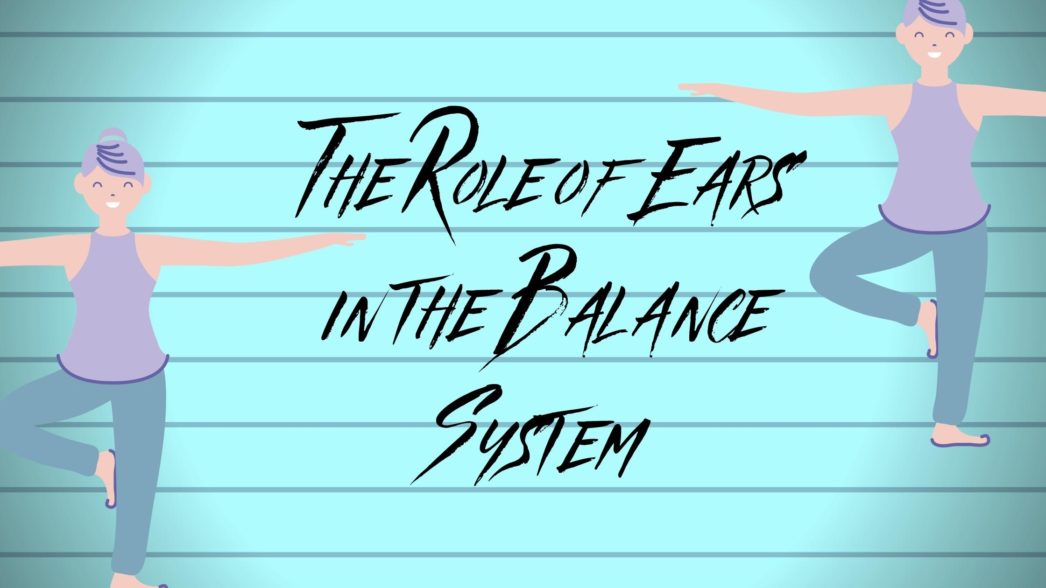Most days we walk around and have a whole day without wondering how we stay upright. It is often not till we begin to have problems with keeping balanced that we wonder how this works in the first place. It is a complicated and seamless process to keep balanced which relies on the brain, our skin, joints, muscles, eyes and our ears. All of these parts of the brain work together to make sure we stay upright through our day, but our ears play an extra essential role. This becomes apparent when someone has to deal with hearing loss.
The Vestibular System
The vestibular system is a sensory system located in the inner ear, that is responsible for providing our brain with information about motion, head position, and spatial orientation as well as motor functions that allow us to keep our balance. The vestibular system is composed of a vestibular labyrinth which leads to three semicircular canals located at right angles from each other. These canals are filled with a liquid called endolymph and each one has a slightly different function. When the endolymph liquid in the canal moves, one canal is responsible for up and down motions, one informs the brain about side to side and one for tilting from right to left. When head position is moved the liquid triggers hair cells called stereocilia. In addition to these canals the vestibular system also employs two otolith organs to detect linear acceleration and gravitational forces. These are called the utricle and the saccule which also contain stereocilia which report these levels of endolymph to the brain.
Hearing Loss and balance
Disruption of the vestibular system can cause such symptoms like vertigo, loss of balance, and nausea and can range in severity from mild to incapacitating. In addition to balance and posture issues, damage to the vestibular system can also cause hearing loss. For instance, the tiny hairs cells in the vestibular are the same type that are responsible for transmitting soundwaves in the form of electrical pulses to the brain to interpret sound. When these are damaged or destroyed due to exposure to loud sounds, head injury, ototoxic medication or old age hearing loss and balance can both suffer. Hearing loss most often begins slowly over time, but as stereocilia are damaged in higher numbers, living with hearing loss can impact your ability to stay mobile. When you can’t hear the warning sounds around you it is difficult to go out on your own, drive a car and even an interaction at a store can be a major obstacle. It is all too common for people with unaddressed hearing loss to stay at home rather than struggle with their disability and reduced balance day after day.
Treating hearing loss can recover balance
While hearing loss is most often irreversible it is very treatable in most cases by using hearing aids. Hearing aids amplify the sounds you can’t hear and send them to your inner ear so your brain can still receive the signal. More and more studies are finding that treating hearing loss can not only improve your ability to hear but also improve a person’s balance. A rather prominent 2015 study from the Washington University School of Medicine in St. Louis tested the balance of people before and after they used hearing aids. Study participants with hearing loss were asked to stand on a foam pad as well as on a hard surface and their balance was tested. The study found that after two weeks of wearing hearing aids the ability to stay balanced longer increased.
The benefits of hearing aids on balance
While hearing aids cannot restore your balance fully, they can amplify sounds, which help to give you clues about your environment. When you are more aware of the sounds around you, it is much easier to avoid needless accidents, due to lack of awareness. Enhanced hearing with hearing aids can help you not only hear what people are saying but the direction, proximity and even the approaching speed of sounds. You are much less likely to be taken by surprise by people and objects approaching as well as an improved reaction time. If you have been struggling with hearing loss, don’t let it get to this point. Schedule an appointment to have your hearing tested today so you can focus on other things and keep your life in balance.


